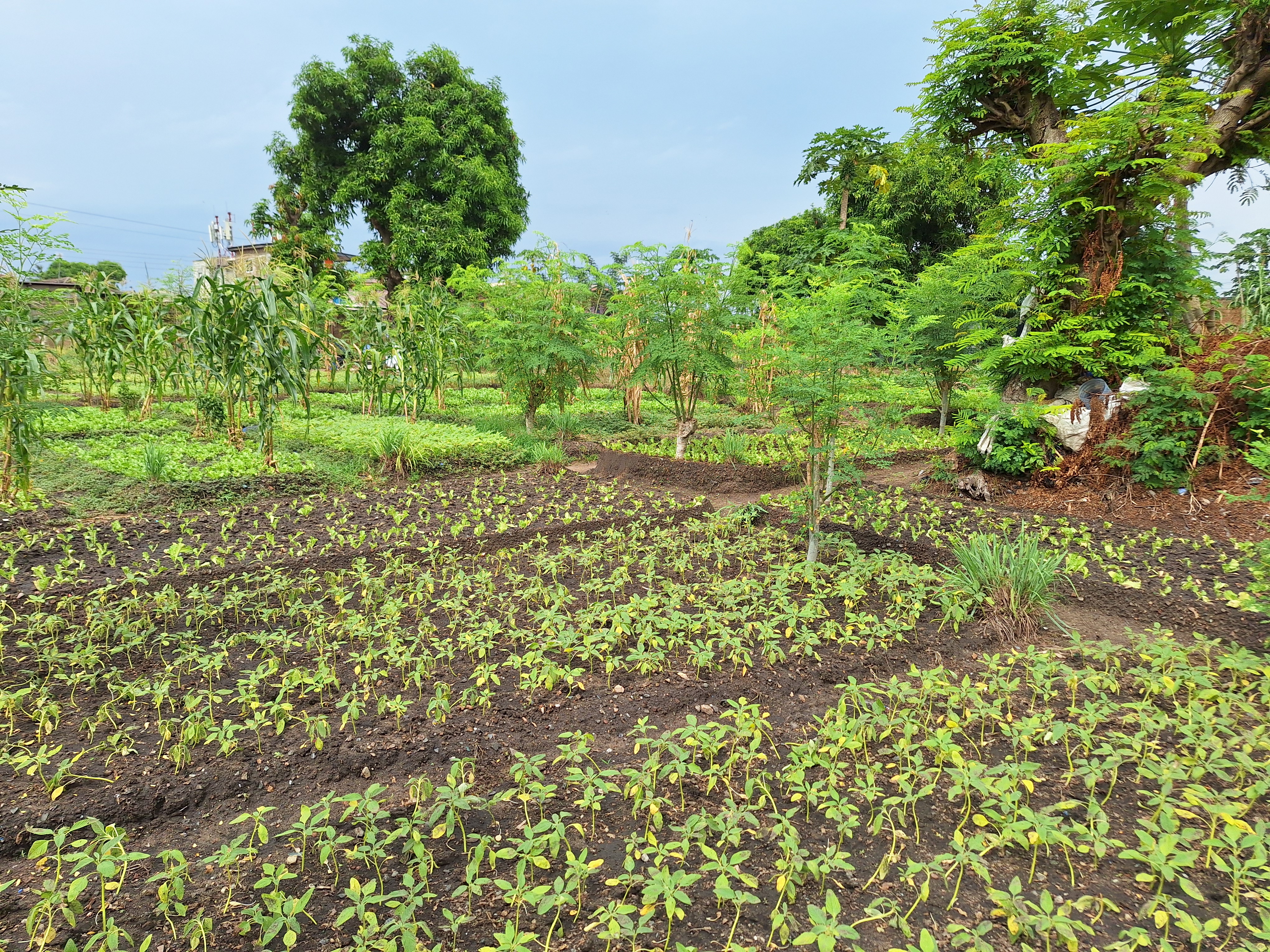
Urban agriculture and climate resilience in Accra, Ghana
Context
Accra faces significant climate impacts, including floods, heat waves, and pollution. Projected increasing temperature and erratic rainfall patterns will compromise the livelihoods of many city and rural dwellers in Ghana. Climate change adaptation therefore remains a major priority for the city and rural authorities in Ghana. Urban Agriculture (UA) holds promise as a strategy for climate adaptation in building resilience among city and rural dwellers in Ghana. Until now, however, not much has been done to unearth the potential of UA in Ghana, particularly in Accra. Although studies (e.g., Asomaning-Boateng 2002) have examined the nature of urban cultivation in Accra, yet, the extent, practices, and attitudes towards UA remain under-researched in Ghana. There is, therefore, little evidence to aid policy actions aimed at addressing climate change challenges and improving urban livelihoods. This exchange will explore how UA can enhance the resilience of urban communities to climate challenges.
We will review pertinent literature and conduct interviews with diverse stakeholders, but also field observations to understand the nature, characteristics and role of UA in climate resilience efforts in Accra.
It is expected that this project will lead to:
- A joint research paper drawing on our field findings
- A grant proposal on urban agriculture and climate resilience
- A case study article about our exchange visit to be published on the YESI website.
Aims and Objectives
This exchange aims to investigate the potential of urban agriculture (UA) in building climate resilience in Accra, Ghana. The project objectives include the following:
- To identify the main types of urban agriculture practices and their characteristics in Accra.
- To investigate how urban agriculture practices contribute to reducing the exposure and sensitivity of urban communities to climate shocks and stresses.
- To understand how urban agriculture practices enhance the adaptive capacity and coping strategies of urban communities to climate shocks and stresses.
Project Outputs
A co-authored new paper exploring the role of Urban Agriculture in building climate resilience in Accra, Ghana, from the perspective of policymakers. Gideon Baffoe, Philip Antwi-Agyei Rethinking the potential of urban agriculture as a climate resilience strategy: Evidence from Accra, Ghana. City and Environment Interactions, Volume 28, December 2025, 100229.
YESI International Fellows seminar: Urban agriculture as a strategy for building climate resilience: evidence from Accra, Ghana
This was a great opportunity to test a key research idea with empirical data. Without the support, this wouldn't have been possible - I can't thank YESI enough. Through the fellowship, I have developed strong connections with policymakers and scholars in Ghana. We now have a strong team for the next phase of the work.
- Dr Gideon Baffoe
University of York Collaborator
Dr Gideon Baffoe, Department of Environment and Geography
Bio: Gideon is a Lecturer (Assistant Professor) in Environment and Development in the Department of Environment and Geography. He is also a member of the Interdisciplinary Global Development Centre (IGDC). Gideon is an interdisciplinary scholar with a background in human and development geography and sustainability studies. He aims to understand and contribute to the processes that enhance the development and sustainability of socioecological and economic systems. He has analysed how socio-cultural and natural environments interact and shape livelihood systems and outcomes in urban and rural landscapes in Africa.
Gideon has wide research interests, including but not limited to sustainable neighbourhoods and cities, poverty and inequality, livelihood, climate change, ecosystem services, food security and agricultural development, urbanisation and natural resource governance. He has strong methodological expertise in combining both quantitative and qualitative techniques in socioeconomic and ecological research. His work has been published in leading journals, including Sustainability Science, Ecological Indicators, Cities and Habitat International.
International Collaborator
Professor Philip Antwi-Agyei, Department of Environmental science, KNUST, Ghana
Bio: Prof. Philip Antwi-Agyei is the Director of the Office of Grants and Research at the Kwame Nkrumah University of Science and Technology, Ghana. Philip is a former Commonwealth Scholar, who obtained his PhD from the University of Leeds, United Kingdom in 2013. Philip is an interdisciplinary climate change scientist whose research involves developing innovative multi-scale methodologies for assessing vulnerability and adaptations to climate change across the local, regional and national scales. Specifically, his research uses spatial databases, ecological studies and field-based participatory approaches aimed at broadening understanding of how climate change and variability affect food security and livelihoods.
Prof. Antwi-Agyei was a Lead Author for the Intergovernmental Panel on Climate Change (IPCC) Special Report on Global Warming of 1.5 oC, and a Contributing Author on the Sixth Assessment Report of the IPCC. He has published extensively in reputable international peer reviewed journals on climate change issues and presented his research outputs in several international conferences and workshops. Philip serves as an Associate Editor for the Journal of Climate and Development (published by Taylor and Francis). He also serves on the Editorial Board of Journal of Environmental Policy and Governance and is a regular reviewer for several leading high impact factor journals on climate change related matters.

